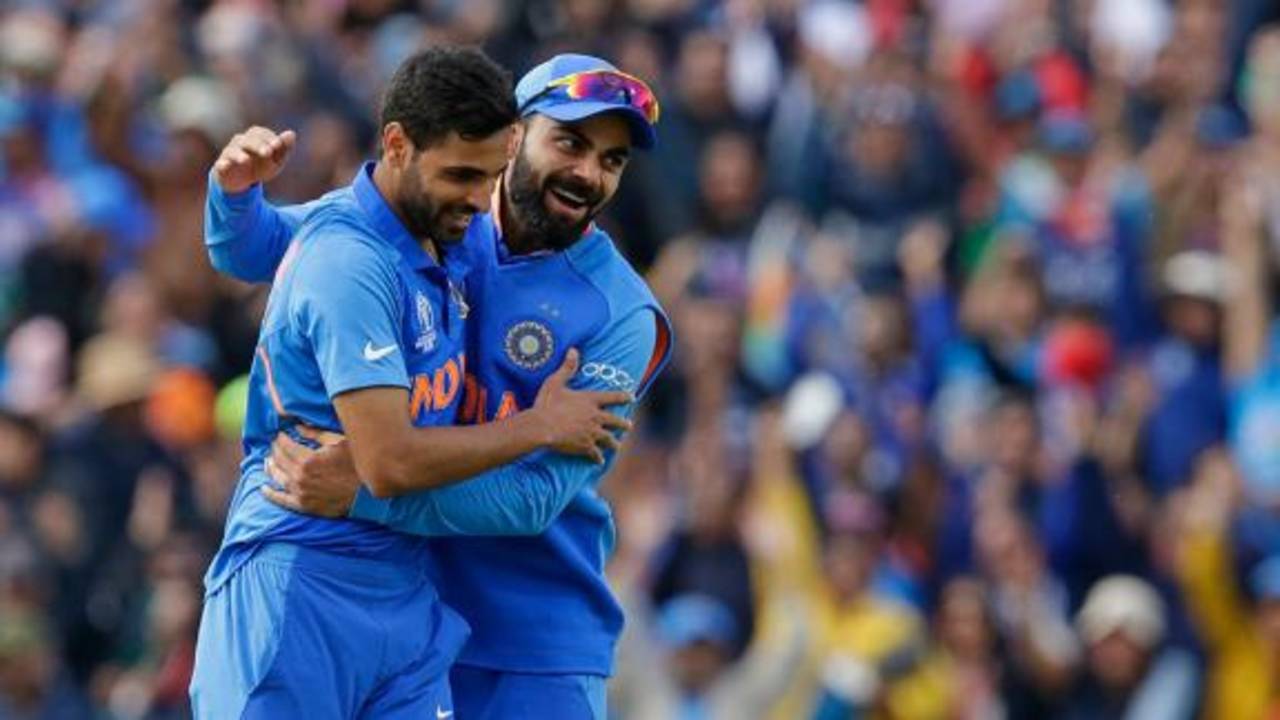'Not getting wickets early on was key' - Aaron Finch
Australia captain praises Shikhar Dhawan and Rohit Sharma for "swallowing their pride" against new ball
Osman Samiuddin at The Oval
09-Jun-2019
The key, Aaron Finch had said the day before this game, was to bowl well early against India's top order. To be on the ball from the very first ball. For nearly the first ten overs, Australia did bowl well, maintaining tight lines usually just back of a length to Shikhar Dhawan and Rohit Sharma. It made no difference.
The pair saw off early spells from Pat Cummins and Mitchell Starc, put on yet another century stand, and essentially set the game up. It was that early wicketless phase, according to Finch, that was key.
"Yeah, I think they took their time, obviously, and they assessed the conditions really quickly and probably identified that they were going to be the two hardest or the two biggest threats early on in the innings," Finch reflected later.
"It felt as though they swallowed their pride and really pulled back a gear and made sure that they got through them first 10 overs, and when you've got world-class players on good wickets and you've got 10 wickets in hand, you can start to up the ante a bit earlier.
"I think not getting wickets early on was probably key there. To have them guys batting deep into the innings, that just gives them so many options where they can shuffle [Hardik] Pandya up the order and [MS] Dhoni, so yeah, I think they played it really well, and probably negated our biggest threats early on."
It turned out that equally challenging opening spells from Bhuvneshwar Kumar and Jasprit Bumrah when Australia began their reply were just as vital. Australia kept themselves within touching distance of a mammoth chase until late in their innings. But there was always the sense that they were leaving the likes of Glenn Maxwell, Marcus Stoinis and Alex Carey just a little too much to do.
Half-centuries from both David Warner and Steven Smith were made at steady pace but more tellingly, they both fell at moments when Australia could think about launching.
"I thought if we could have some wickets in hand and some batters in toward the back end of the innings, we could potentially do some damage," Finch said. "But we probably just kept losing wickets when we were trying to up the run rate, and then as you know, when new batters come in, the run rate creeps up slowly. When it gets to 10, 12 and over, it cranks up pretty quickly, as well."
Warner's innings, in fact, could even be said to be slow - by the standards of the chase and certainly in the context of the kinds of innings he can produce. That makes two, what could be called, un-Warner like innings in the tournament - his 84-ball 56 following a 114-ball 89 not out against Afghanistan.
It was in part, Finch said, down to the nature of The Oval surface, a used wicket. Finch had wanted to bat first because he knew the pitch would slow down, playing into the hands of Yuzvendra Chahal and Kuldeep Yadav.
"They bowled really well to him early, and I think particularly playing on a used wicket again for our second time in three games played a little bit of a part in that," he said. "Their spinners probably had a bigger impact than what ours did. Well, they did have a bigger impact than what our spinners did, through the middle overs in particular where the ball was just starting to hold up.
"They bowled nice and straight, back of the length, where the ball was just skidding quite low to start with, and to myself, as well, they just didn't give us any width to get away or any length to really work with, either over the top or get a drive away. Their bowling plans were pretty simple but really effective on a wicket like that."
Osman Samiuddin is a senior editor at ESPNcricinfo
